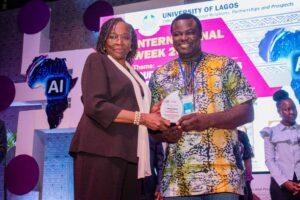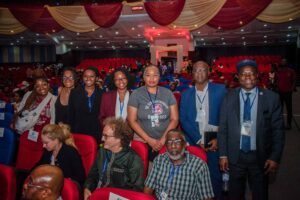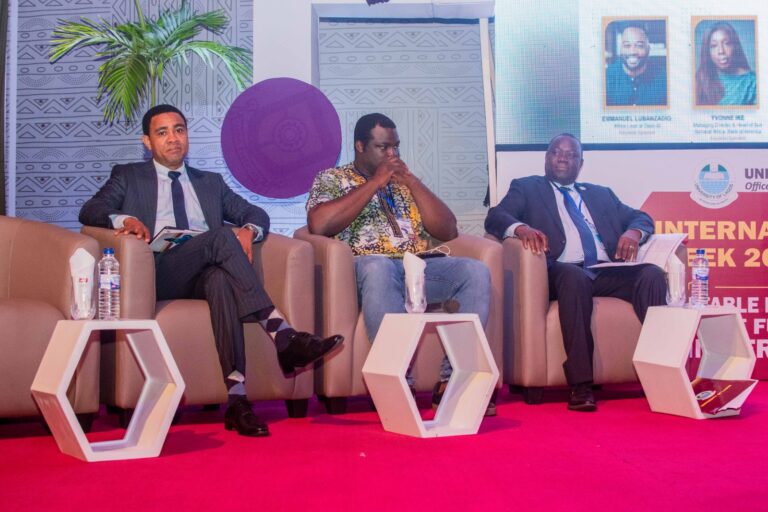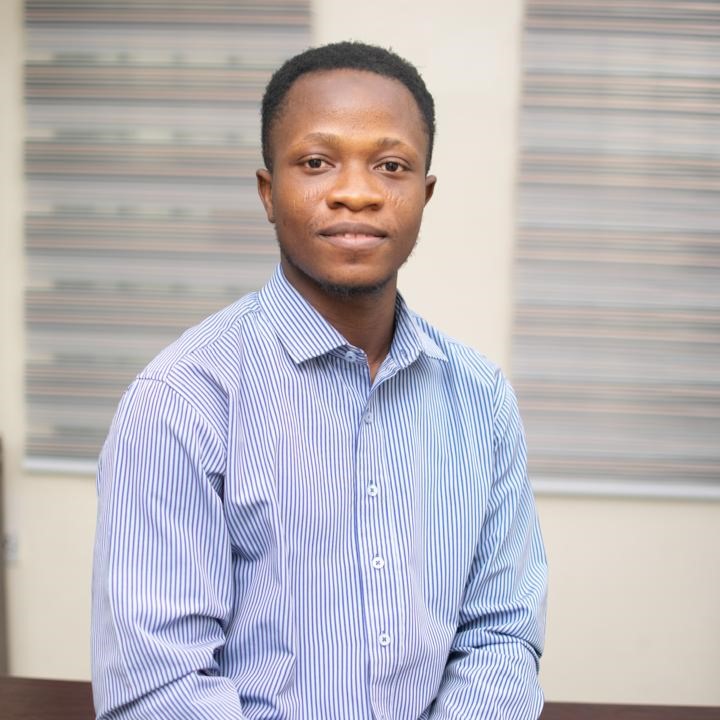Nigerian tech expert and Founding Partner of Future Africa, an investment company focused on building and scaling digital economy businesses, Iyinoluwa Aboyeji, has accused Western countries of “committing crimes against humanity” by allegedly restricting sales of chips to other countries of the world.
The allegation is coming at a time when both the United States of America and China are engaging in tough contests over sales of semiconductors (chips), which are said to be “integral to the global economy and a vital component of advanced technologies.”
Recently, American lawmakers called for broader bans on sales of chipmaking tools to China, revisiting the existing controversies over issues of safety and economy.
Mr Aboyeji spoke on Tuesday at the University of Lagos (UNILAG), Akoka, Nigeria, while participating in a panel session during the opening ceremony of the institution’s 5th International Week.

The event, with the theme: “Equitable Partnerships and the Future of AI in Africa,” featured other leaders of global giant corporations and academic institutions, including the European Union, Bank of America, OpenAI, University of Manchester, South Carolina State University, and African Cities Research Consortium (ACRC), among others.
Earlier, the Managing Director and Head of Sub-Saharan Africa of the Bank of America, Yvonne Ike, and Africa Lead at OpenAI, Emmanuel Lubanzadio, in their keynote speeches, spoke about the huge potential on the continent and why self-assessment is important to identify Africa’s areas of strength towards developing particular AI solutions to specific challenges.
Aboyeji kicks
Speaking on equitable partnership, Mr Aboyeji noted that Africa cannot compete with Western countries due largely to infrastructural gaps, but urged these developed economies to be fair in their dealings with the rest of the world, especially in the area of sales of chips.
He said conversations about equitable partnerships between Africa and the rest of the world cannot hold without talking about responsibility and value.
Mr Aboyeji said: “We need to have conversations about equitable partnerships, capturing value. The reality right now is that the West is not being fair in that respect. They are restricting the sales of chips to countries around the world, and I am very surprised that academia elsewhere in the world have yet to react to this because I will consider this a crime against humanity.”
Why academia must fight
The entrepreneur said there must be organised sharing of knowledge around artificial intelligence technology globally, noting that anything short of that will put the other countries at the mercy of the superpowers.
He urged members of African academia and other concerned researchers to rise to the occasion and fight for justice in knowledge sharing, especially on artificial intelligence. “…otherwise you are going to have a situation where some parts of the world can subjugate knowledge, which is the foundation of society, to themselves, and capture other people’s knowledge.
Mr Aboyeji said: “This is unacceptable for me. And there has to be an outcry from academia, to say the same global equal foundation on which the internet is built as a public resource must be maintained in the development and propagation of artificial intelligence.”
He said neither business owners nor politicians could address the injustice in the area of knowledge sharing on the chip deal due to business and political interests. He, however, noted that as intellectuals, members of the academic community can fight the battle while other interest parties provide support
He said: “Again, our academia must lead the battle. Artificial intelligence is not a space for politicians or businesspeople like me to lead the fight. We may be able to contribute, but realistically, our commercial interest will probably supersede and override more imposing long-term intellectual interests.
“So, academia, in particular, in the rest of the world, should rise to the occasion to have the conversations about how the foundation of knowledge has to be created, collated and distributed probably captured because, otherwise, the reality is that the number one place where the destruction will begin, if this is not the case, is the university”.
He agreed that certain forms of knowledge will be more valued than others, and that certain people will have the ability to subjugate knowledge, and that certain people will have the resources and responsibility for apportioning what is knowledge itself. “And that is the scenario we cannot allow to become the case.”
He commended the University of Lagos for hosting the convening, insisting that with such an initiative coming from the institution, the future is bright not only for Nigeria but the continent of Africa.
VC speaks
The university’s Vice-Chancellor, Folasade Ogunsola, in her opening remark, noted that Africa cannot just stand in as a passive consumer in the AI revolution, insisting that the continent must produce “active contributors, thoughtful leaders, and builders of contextually relevant solutions.”
She said it is not an option, but something very necessary.
“At the University of Lagos, we have taken this responsibility seriously. We are proud to be a leading force in Nigeria’s academic and technological renaissance. Our university is committed to becoming a hub of excellence in artificial intelligence, innovation, and interdisciplinary research- one that reflects both global standards and African realities,” she said.
Minister, others pay glowing tributes
The Minister of Communications, Innovation, and Digital Economy, Bosun Tijani, who was represented by his Senior Special Adviser on AI, Data, and Research, Olubunmi Ajala, outlined a series of interventions by the government to address knowledge gaps in the areas of AI and innovations, and commended the university for taking the lead in advancing pertinent conversations on the subject.
Mr Ajala said: “The question before us is how Africa can ensure equity in this technological transformation. We cannot afford to be passive beneficiaries; we must be active participants”.
He highlighted Nigeria’s National AI Strategy, launched in April 2024, which he said established 55 AI research consortia and invested in digital infrastructure across the country. “Data, algorithms, capacity development, and infrastructure are key focus areas. The goal is an inclusive digital economy where every Nigerian can thrive,” he said.

Other speakers, including the Head of Cooperation at the EU Delegation to Nigeria and ECOWAS, Massimo De Luca; Dean of the College of Business and Information Systems at South Carolina State University, Matthew Guah, and the CEO of ACRC, Diana Mitlin, a professor, spoke about shared values in equitable partnerships.
They echoed the praises for the UNILAG management for what they described as deliberate efforts aimed at bridging the partnership barriers.
OpenAI launches academy, new product
Meanwhile, as part of the activities marking the annual event, OpenAI, an American artificial intelligence organisation, launched the first academy in Africa on the campus. This is even as it introduced ChatGPT Go, a new product that offers Africans a low-cost subscription based on geographical locations beginning from Wednesday, 15 October.
The organisation explains that the new AI platform provides expanded access to ChatGPT’s most popular features at an affordable price, relative to whichever African country the users are located in.
Director hails partners
The Director of the university’s Office of International Relations, Partnership and Prospects, Ismail Ibraheem, a professor of Journalism and Communication Studies, commended the university management, partners, and collaborators for their interest in helping to sustain the vision of the university’s founding fathers.
He also thanked the staff and students for working around the clock to ensure the success of the event.


